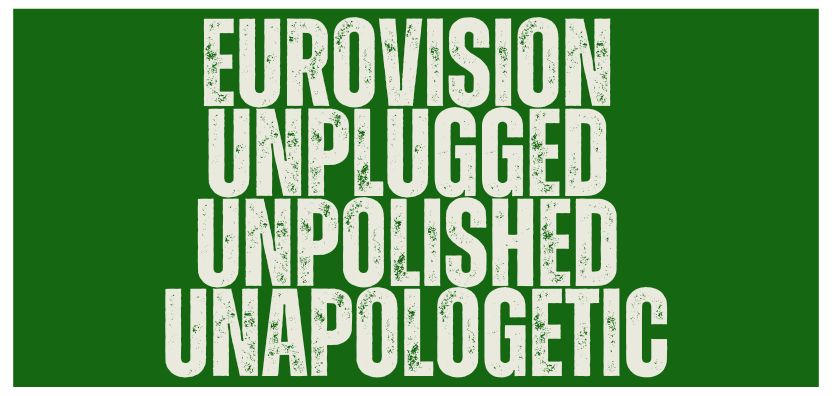
The Eurovision Song Contest continues to pull in big audiences. The 2024 edition, held in Sweden, saw varied viewing figures across its three main events: the first semifinal, the second semifinal, and the grand final.
Read also: Eurovision 2023: The Viewing Figures
First Semifinal
Already, the Tuesday semifinal feels like it took place in different times – some of the major media bombshells had yet to hit. As such, the first semifinal of Eurovision 2024 set a high bar for viewer engagement.
Spain marked its best ratings since 2009 with approximately 722,000 viewers, a 5.7% share on TVE2. The United Kingdom reported its best-ever semifinal viewership outside of a hosting year with nearly 1.9 million viewers tuning in on BBC One. Finland demonstrated a strong viewing share of 66%, showcasing the country’s continued enthusiasm for the contest.
Other notable figures included:
- Austria: 381,000 viewers, 18.5% share
- Belgium: VRT: 635k viewers, RTBF: 136k viewers
- Germany: 680,000 viewers, 3.6% share
- Iceland: 92,800 viewers, 53.3% share
- Italy: 1,912,000 viewers, 9.5% share
- Switzerland: 162,000 viewers, 17% share
These numbers reflect a robust interest in the contest’s competitive stages, setting the stage for even higher anticipation for the subsequent shows.
Second Semifinal
The second semifinal saw Italian Rai 2 capturing an average of 2,817,000 viewers, making it the channel’s most-watched primetime show of the year to date. The United Kingdom maintained strong viewership with 1.8 million viewers on BBC One – after years hiding it away on minority channels. Germany saw a slight dip compared to the first semifinal with 660,000 viewers, yet interest remained higher than in 2023. Spain also showed an increase from the first semifinal, with 1,285,000 viewers tuning in on the night Spanish fans could watch their song and vote, marking it as the second most-viewed semifinal in the country’s Eurovision broadcast history.
Grand Final
The grand final, as expected, garnered the highest viewership, with standout numbers from major broadcasting countries:
- Germany: Approximately 8.1 million viewers, a slight increase from 2023, achieving a 36.8% overall share on ARD.
- United Kingdom: 7.7 million viewers, a significant drop from the previous year’s record-breaking figures, yet still respectable.
- Italy: Achieved its best viewership ever for a non-hosting year with approximately 5.3 million viewers.
- France: 5.4 million viewers, an increase of 1.9 million compared to the previous year.
- Spain: 4.9 million viewers, showing substantial interest.
Host country Sweden achieved a similar audience to last year’s edition with 2.31 million viewers tuning in for the Grand Final. Switzerland saw a significant increase, with 614,000 viewers watching as Nemo won the contest. Croatia also reported its highest ESC audience on record with 1.1 million viewers and a 73.2% share. 1.2 million tuned in across Belgium, with VRT reporting the show as its most watched programme for the night. 666k watched in Ireland, helping RTÉ record its largest Grand Final audience since 2018 – up 53% overall compared to 2023. 800,000 were watching in Ukraine, up significantly from last year, with a huge leap during the voting. Around 70% of Estonian viewers tuned in with numbers peaking at 250,000.
Despite fluctuations, these numbers illustrate strong viewer engagement across Europe, with millions tuning in. Notably, Iceland experienced a decrease in viewership, with 111,580 viewers for the grand final, down 30% from the previous year. Norwegian NRK reported its lowest viewing numbers since 2007, with just 884k viewers seeing Gåte end in bottom place. Australian SBS reported 400,000 people tuning in to the two broadcasts, up 2% on last year, making the show the best performing programme this year (so far) for the broadcaster. Conversely, Greece recorded its highest audience share since 2010, with 2,806,000 viewers and a 68.1% share.
Global Impact and Online Engagement
The Eurovision Song Contest 2024 reached 163 million people over the three live shows across 37 public service media markets, marking an increase of 1 million compared to 2023. The viewing share of the Grand Final was 46.7%, the highest since 2006. Among youth audiences (15-24 year-olds), the viewing share was 58.6%, the highest on record.
Online, the contest saw huge engagement. The official Eurovision TikTok account reached 486 million unique accounts, with videos using #Eurovision2024 amassing 6.5 billion views. On YouTube, 7.3 million unique viewers watched the live shows, with concurrent views peaking at 1.6 million during the Grand Final. The Eurovision Song Contest app was used by 2.5 million people, highlighting the digital growth and engagement surrounding the event.
And so …
For all the mishaps and missteps taken by organisers this time around, sustained interest in Eurovision underscores its relevance and appeal as a significant event in the international music and cultural calendar. It continues to draw viewers across varying demographics. As Eurovision evolves, its ability to adapt and resonate with a global audience ensures that it remains a highlight of the broadcasting year.





